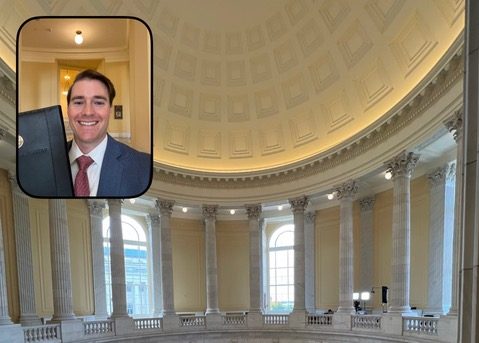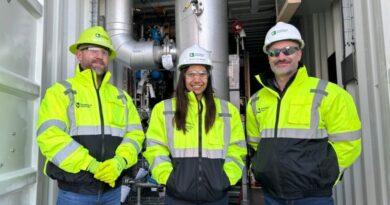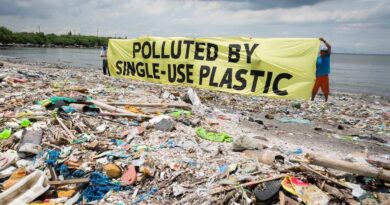Alumni Spotlight: Becoming the Bridge Between Environmental Science and Policy
Patrick Iler grew up in Florida, where he went diving in coral reefs and dreamed of becoming a marine biologist. After attending a high school with a specialized environmental focus, Iler continued to study environmental science at Florida State University.
Although his career ambitions have since shifted to more terrestrial pursuits, Iler’s interest in environmental science has never wavered. Now, with a Master of Public Administration in Environmental Science and Policy (MPA-ESP) from Columbia, Iler works as the director of strategy and policy for Family Lands Remembered, a small environmental consulting firm dedicated to land conservation, water resource protection, and sustainable development.
Iler spoke to us about his highlights from the MPA-ESP program and his ambitions for the future.
What drives your interest in sustainability?
The fact that sustainability encourages economic growth in addition to mitigating climate change effects. Many earlier climate strategies focused on limiting or reversing economic growth, and I believe that is what led to the intense partisan pushback on climate policy over the last two decades. If I had to narrow it down to a specific time, I’d say my interest started after I read “Building the New American Economy” by Columbia professor Jeffrey Sachs. Reading that really opened my mind to the idea that there were other ways to tackle climate change than just through government action or major shifts in cultural attitudes.
Can you give us a quick overview of your educational background and work experience?
During my time at Florida State, I volunteered on political campaigns and interned on Capitol Hill. Then I worked for Family Lands Remembered, mostly on nonprofit and small conservation projects.
After attending ESP, I worked in Washington, D.C., on Capitol Hill for a year as a legislative fellow, followed by a political campaign in Europe for the Social Democratic Party.
When I came back to the U.S., I wanted to return to conservation, but this time with a much bigger impact. I started to work at Family Lands Remembered again with large-scale conservation projects in mind. For example, I recently worked on a big project protecting 11,000 acres of mangrove forests and an endangered Florida panther habitat next to Everglades National Park, and I worked to protect Big Cypress National Preserve from oil drilling or fracking by acquiring the private oil rights underneath the preserve.
What made you choose the MPA-ESP program at Columbia?
I chose MPA-ESP because of the prestige of the university and the Earth Institute’s stature in the environmental field. After reading Jeff Sachs’ book, I was fascinated by his view on sustainability and economic growth and thought ESP was the best fit to explore those topics and potentially learn from him directly.
What were the most valuable skills you took from the program, and how have they translated to your professional life?
I’d say that the program really helped me hone my public speaking and communication skills. MPA-ESP’s focus on communicating complex topics in simple terms without losing nuance is such a valuable skill.
Another skill I learned from ESP was effective management. One of the best skills one can have is to be a sort of jack of all-trades, and to have deep enough knowledge of multiple subjects to be able to understand the issue and manage others accordingly. Essentially, you become the bridge between science and policy.
Where would you like to see your career take you?
I want to continue to have a positive impact on the world, mostly through conservation and endangered species protection. Just like sustainability seeks to have climate action and economic growth work in parallel, I feel it’s important for environmental protection and economic growth to work in parallel as well.
I would love to be able to help designate and implement the first national wildlife corridor in the U.S., just as Florida has done with its wildlife corridor. I’m also planning on going to law school in the next year and want to build on my understanding of contract law and public-private partnerships, both of which have been instrumental in my work thus far.
Do you have a favorite memory of the program?
Some highlights include trivia at Amity Hall [a local craft beer bar], after-exam drinks at Arts & Crafts Beer Parlor near campus, and the World Leaders Forum at Low Library. There was also an ESP canoeing field trip that I think took us along the Bronx River.
What advice do you have for current students?
Be open to all opportunities. You may have a specific job in mind, but some things don’t always pan out, so be adaptable, and the opportunities will find you. Also, some climate jobs aren’t advertised as such and are in companies you wouldn’t initially think of. Heavy construction companies are trying to understand resiliency to build hardened coastlines. Oil companies need help parsing the intricacies of carbon capture technologies and the new Inflation Reduction Act policies around them. Land developers want to build climate-resilient communities to lower insurance premiums for residents and need help understanding public funding programs and the science behind them.
Source : news.climate.columbia.edu




